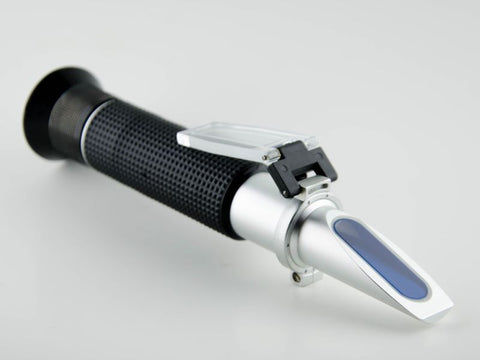In recent years, there’s been an upsurge in health-conscious businesses, and the wine market is no exception (ours being one of them!). Low-calorie and keto-friendly wine options have been popping up, with some businesses claiming their wines are lab tested to ensure they're sugar-free. But is lab testing for sugar necessary, or just another marketing gimmick?
Today, we’ll explore laboratory testing in wine, including its purpose and application by winemakers and vendors, and its relevance to wine enthusiasts who prioritise their health.
How lab testing of wine is used by winemakers
Lab testing is used by winemakers for many things. The main aspect a winemaker will get their wine lab-tested for is the alcohol level, which is a legal requirement in most markets, including Australia.
Some other tests on wine chemistry such as measuring titratable acidity, pH, volatile acidity and others can help the winemaker make certain decisions during the winemaking process to influence the final product. These things are typically tested by a third-party lab, although some bigger wineries may have technology in-house to run these tests.
Beyond that, not all testing is done in a laboratory. In fact, one of the most common tests on grape juice before it's fermented is done using a hand-held refractometer like the one below:

These nifty devices measure the sugar content in grape juice, which is not only useful in figuring out how soon the grapes will be ready for picking, it also lets the winemaker know what the potential alcohol (the alcohol level of the wine if all the sugar is fermented) of the wine will be.
How lab testing of wine is used by keto-friendly wine businesses
Since we started Feravina in 2020, a number of businesses have been popping up marketing their wines as keto friendly. Wine in general is a pretty keto-friendly alcoholic drink compared to beer and cocktails, with dry wines having little-to-no residual sugar. However, because wines don’t have an ingredient label, it can be tricky for consumers to pick a sugar-free wine, which is where marketing wines as sugar-free is of benefit.
This is why as a health-conscious business we only stock wines with less than 3 grams of sugar per litre, which is as low as sugar in wine can go, and we share that information in the wine information section for all our wines to help customers shop with confidence.
A number of businesses claim they lab test their wines to make sure they're below a similar sugar level, implying that this is the only way to be sure of the sugar level of the wines, and that winemakers are either not measuring residual sugar, or being disingenuous about sugar content when asked.
In reality, a winemaker knows what the residual sugar of their wine is because they know what the sugar level of the grape juice was (using a refractometer), and they know what the final alcohol level is (because they have to get it checked for the bottle label). Using some very simple maths, they know within a gram what the final sugar level is.
Hence we find no need to test our sugar free wines, especially given we deal with reputable winemakers who care more about making good, honest wine than they do about tricking customers to make money.
How about lab testing wine for sulphites?
There might be a bit more sense behind this, but we haven't found it necessary. Again, because we deal with small producers, often consisting of one person, a couple, or a family, we just ask them how much sulphur they use, and many of them as a rule use less than even we allow (<50ppm total sulphur) so we know we're in good hands.
If a wine business is selling wines from much bigger producers who might be beholden to shareholders or owners who aren't involved in the winemaking, perhaps that trust and connection to the wine won't be there to the same extent. In these cases, lab testing may be something worth exploring because of the tendency for poor transparency in big business.
The final word on lab testing of wine in the keto and health-conscious wine industry
Ultimately, if we thought lab testing was necessary, we'd do it. However, because a winemaker knows what's going into their wine in terms of the sugar content of the grape juice and sulphites added at bottling, there’s no need to test the wine once it’s bottled.
We have strong relationships and respect for the suppliers, importers, and wineries we work with, and if they tell us a wine is bone-dry (meaning it has only a gram or two of residual sugar at most) then we believe them because we trust they know best.
Hence businesses claiming they lab test their wines for sugar and sulphur are likely using it as a marketing gimmick, making their wines seem superior when in reality, they’re often working with larger, more commercial producers who make lower-quality bulk wines.
While those wines may appeal to some, for us, we focus on sourcing high quality wines from dedicated winemakers and grape growers rather than marketing tactics like lab testing and custom packaging. This is why we regularly receive feedback from customers who say our wines are far superior to other sugar free wines they've tried. If you're yet to try our wines, shop our collection of sugar-free wines here and experience the difference yourself!



Leave a comment